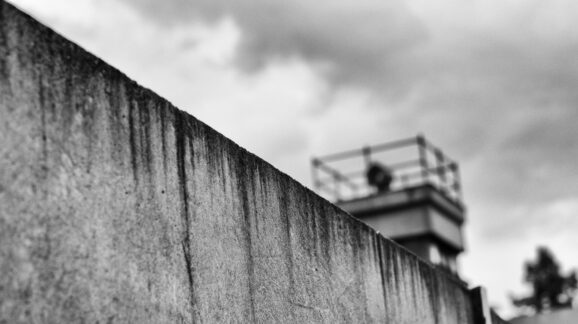Berlin Wall anniversary offers lessons for today
The Berlin Wall toppled 35 years ago. First, the world looked on with awe, and then the disbelief gave way to jubilation. From Aug. 13, 1961, to Nov. 9, 1989, a major European city was disfigured with a concrete barrier wreathed in razor wire and punctuated by armed guard towers. It was emblematic of the state-sponsored terrorism found in East Germany, Eastern Europe, and elsewhere around the world: communism.
Today, millions of Americans remember the wall and its significance in tandem with the evocative visuals of Presidents John F. Kennedy and Ronald Reagan speaking from West Berlin over the wall to the people of East Berlin. Their messages reverberated all the way to Moscow. Kennedy called the wall “an offense against humanity, separating families, dividing husbands and wives and brothers and sisters, and dividing a people who wish to be joined together.”
The wall was an indelible marker for all to witness. When the East German regime and its wall abruptly crumbled in 1989, the world watched people literally and figuratively move toward freedom for people and away from coercion and state control.
In 1963, Kennedy arrived with a message of solidarity to the weakened, isolated, and vulnerable Germans. His strength of conviction was broadcast to capitals throughout the Soviet Bloc. By the time Reagan implored General Secretary Mikhail Gorbachev to “tear down this wall,” the era of 20th-century communism responsible for the deaths of more than 100 million people could hear its own death rattle.
When the Berlin Wall fell, it was a culminating moment of a momentous year. In 1989, largely peaceful revolutions swept Soviet Bloc governments. In addition to East Germany, change came to Poland, Hungary, Czechoslovakia, and Romania.
Families that had been separated for decades were reunited. Oppressive state surveillance and restrictions on expression, travel, and pursuit of education or employment receded under waves of newfound energy across the East. Long suppressed hope flowered in the hearts of millions. There was a palpable sense that opportunities previously denied would remake the world.
The late moral philosopher Michael Novak coined the term “spirit of democratic capitalism.” He contrasted democratic capitalism and all its messy pluralism with an absolute unitary state. Novak was right about the spirit of democratic capitalism. There is a universal human yearning for dignity, prosperity, and innovation, irrespective of the circumstances of a person’s birth or the language he or she speaks.
However, decades after the wall came down, the path forward remains fraught. Free societies are fragile and difficult to maintain. Wealth is more easily destroyed than created, and there will always be people attracted to authoritarianism and its promise of order. The tensions with the spirit of democratic capitalism currently play out in places such as Beijing and Caracas, as well as in Brussels, Paris, and Washington, D.C.
Read more at the Washington Examiner
